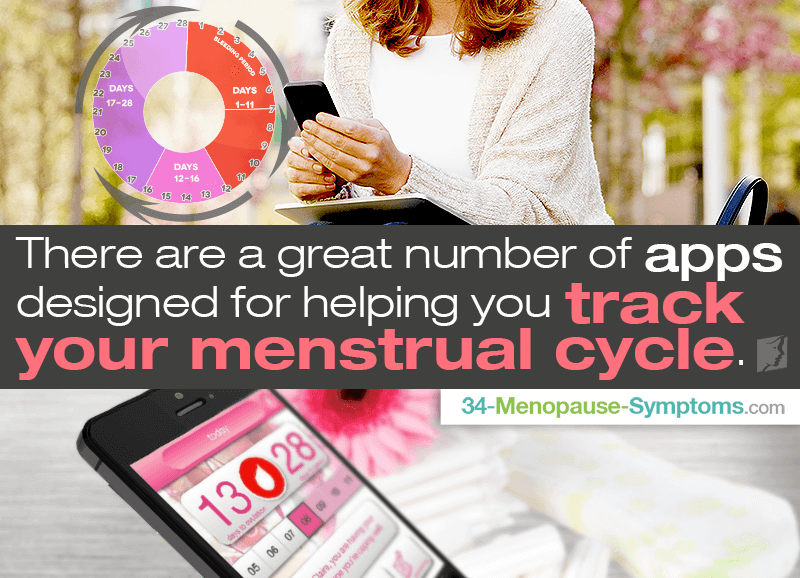Accurately tracking your period can be especially useful when you get past the age of 45, because it might enable you to determine what stage you are at regarding menopause. While some women are able to tell exactly when they can expect their next period, others find that they are less predictable. With this in mind, it can be beneficial to consider the use of a menstruation tracker. Read on to find out about some of the most popular options.
Why Can Tracking My Period Help?
Most menstrual cycles work on a 28 day basis, but anything between 21 and 45 days can be considered normal. In general a woman's personal cycle should be more or less the same from month to month (i,e; although a decrease or increase of a few days can be expected), and so by using information relating to the experience of one month, you should be able to predict when the next period will occur. There are several ways in which this information can be helpfully recorded.
How Can I Track My Period Manually?
Probably one of the simplest options when it comes to how to track your period, is to make a period chart at home. On this it can be helpful to make a note of the following aspects of your menstrual cycle:
- First and last day of bleeding each month
- How light or heavy the bleed was on each day
- Various moods throughout the month
- If you experience cramping
- Any differences in sleeping patterns
While not all women are affected by moods, cramping, and changes regarding sleep, you might find that these factors can also provide information about your menstruation pattern.
How Can I Track My Period Online?
Considering the advances of modern technology, it is probably not surprising that there are a great number of apps and websites available which are designed for helping you track your menstrual cycle. Some of the most popular, free options are:
Clue. This app is favored by women who prefer a scientific, practical approach. In addition to information concerning bleeding and other menstrual symptoms, it can also be used to record body temperature, changes to cervical mucus, and sex drive. The combination of these details allow the app to calculate future menstruation dates and periods of ovulation.
Glow. One of the most popular options, Glow allows you to store information regarding over 40 different health aspects relating to periods and ovulation. It can be used to set reminders concerning these, as well as contraception and other medications. It also offers a partner app which can be used to track male fertility.
My Cycles. Can be used for recording both period and ovulation information. With regards to menstruation, it can be used to store details regarding bleeding, cramping, moods, fatigue, and breast tenderness. It is also possible to determine which information you wish to be displayed, and you can also use the app to interact with other women regarding questions relating to women's health.
There is a vast array of menstruation-tracking options to choose from - one study showed that there are over 1000 apps available. When selecting one, it is necessary to thoroughly research what they offer, in order to determine which is right for you. While apps are becoming increasingly popular, it should be said that a pen and paper chart or calendar can be just as beneficial for those who prefer this method.
Sources
- Bedsider. (2016). Which fertility and period tracking apps can you trust? Retrieved June 21, 2017, from https://www.bedsider.org/features/932-which-fertility-and-period-tracking-apps-can-you-trust
- MedHelp. (n.d.). My Cycles - Free Period & Ovulation App. Retrieved June 21, 2017, from http://www.medhelp.org/land/my-cycles
- Moglia, M.L. et al. (2016). Evaluation of Smartphone Menstrual Cycle Tracking Applications Using an Adapted Applications Scoring System. Obstet Gynecol, 127(6):1153-60. Retrieved from https://www.ncbi.nlm.nih.gov/pubmed/27159760
- Womenshealth.gov. (2014). Menstruation and the menstrual cycle. Retrieved June 21, 2017, from https://www.womenshealth.gov/a-z-topics/menstruation-and-menstrual-cycle




